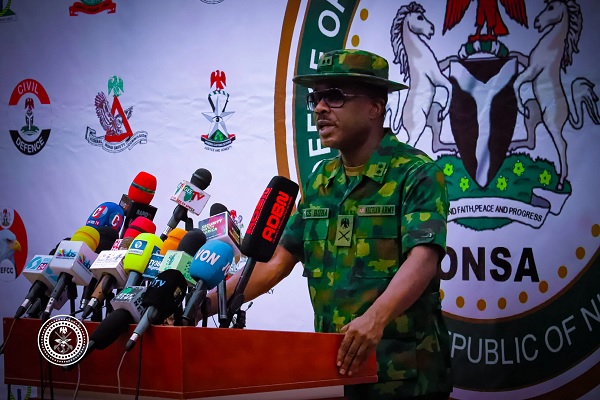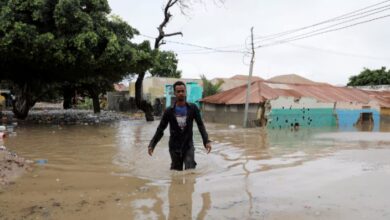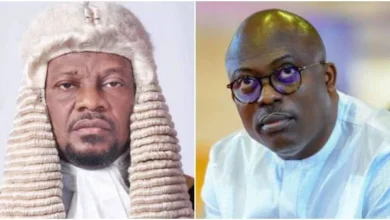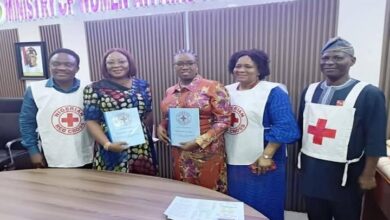Nigerian Military Denies Paying Bandits’ Allowances

The Chief of Defence Operations, Major General Emeka Onumajuru, has dismissed claims that the Nigerian Armed Forces are involved in paying money to bandits across the country.
Speaking during an interview on Channels TV on Tuesday, Onumajuru stressed that ransom payments and monetary inducements have not proven effective in addressing Nigeria’s worsening insecurity.
“The armed forces of Nigeria do not support the payment of money to criminal groups. The armed forces of Nigeria are not part of that arrangement,” he stated firmly.
Onumajuru explained that instead of payments, the military is committed to implementing the Disarmament, Demobilisation and Reintegration (DDR) framework, in collaboration with other stakeholders such as the Ministry of Justice and the Office of the National Security Adviser (ONSA).
He highlighted the role of Operation Safe Corridor in Gombe State for the North-East, and a similar initiative in Zamfara State for the North-West, as platforms where repentant fighters can voluntarily surrender their weapons.
“Those who have shown remorse and want peace are profiled thoroughly to determine the extent of their culpability.
Those found guilty face the law, while others are transferred to DDR centres where they begin reintegration,” Onumajuru added.
He further noted that some fighters were forcibly conscripted and trapped in criminal networks. For such individuals, the DDR programme provides “an alternative route out of criminality.”
The comments come amid renewed controversy sparked by former Kaduna State governor, Nasir El-Rufai, who accused the government of secretly paying bandits to maintain temporary calm in some northern states.
In a statement posted on X (formerly Twitter) on Monday night, El-Rufai alleged that the ONSA, in collaboration with a northern senator, had been coordinating a “policy of payments to criminals.”
“We are not the first to reveal the government’s ongoing greasing of the palms of non-state actors in Kaduna, Katsina, Zamfara, Sokoto, Niger, Kebbi, and other states,” El-Rufai wrote.
He added that community leaders and clerics had openly condemned these payments.
During a television interview on Sunday, the former governor doubled down on his claims, arguing that ransom payments embolden armed groups and weaken long-term security efforts.
In response, the ONSA issued a statement on Monday signed by its spokesperson, Zakari Mijinyawa, rejecting El-Rufai’s claims as “baseless and misleading.”
The statement reiterated that the Nigerian government under the current administration has consistently warned citizens and local leaders against paying ransom to criminal groups.
It also pointed to recent military successes, including the elimination of notorious bandit leaders such as Boderi, Baleri, Sani Yellow Janburos, Buhari, and Boka in Kaduna State, as well as the arrest of senior Ansaru commanders.
“These sacrifices by security personnel and the progress in degrading criminal networks prove that the government is committed to restoring peace,” the ONSA noted.
The agency further cautioned political figures against dragging national security institutions into partisan debates, stressing that fighting banditry and terrorism requires collective national effort, not political point-scoring.
Nigeria has struggled with escalating violence from armed groups in the North-West and North-Central regions. Rural communities in Kaduna, Katsina, Zamfara, Niger, and Sokoto have suffered repeated mass abductions, killings, and attacks.
While security forces claim progress, many citizens remain sceptical about government strategies, particularly regarding alleged backdoor negotiations with armed groups.
Onumajuru’s clarification seeks to reassure Nigerians that the military is focused on structured solutions such as DDR rather than ransom payments, which critics argue only deepen insecurity.
The post Nigerian Military Denies Paying Bandits’ Allowances appeared first on Diaspora Digital Media DDM.





